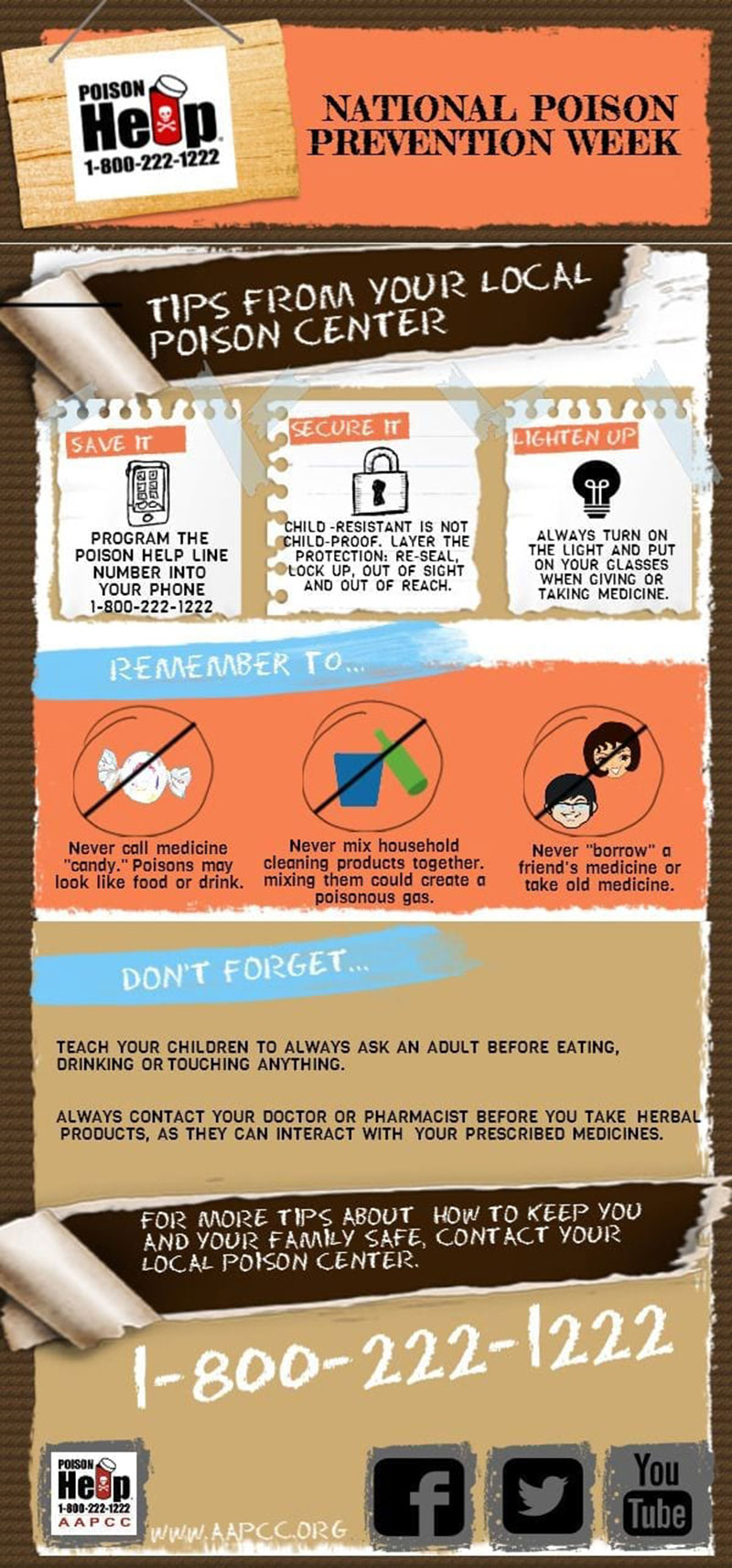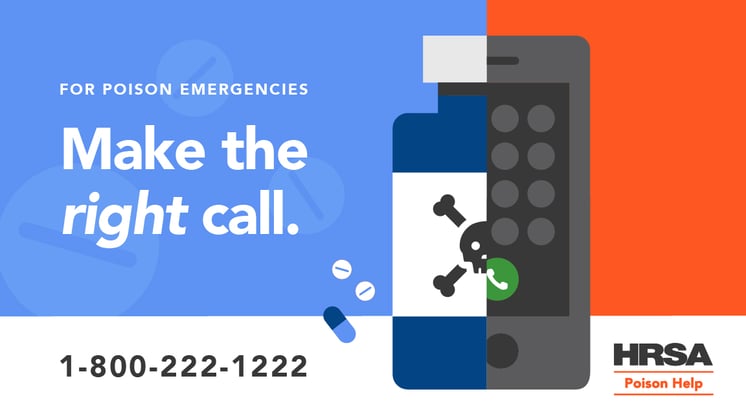Check your homes for possible poisons that can harm you and your children during National Poison Prevention Week (March 15 to 21, 2015).
The UMHS Endeavour looks at why this week, observed every year the third week in March, is an important way for the public and future doctors at American and Caribbean medical schools to eliminate poison-related hazards in the home—where 90 percent of poisonings occur. We will look at the history of the week and explore how to “poison proof” your home because the Centers for Disease Control and Prevention (CDC) says poisoning is the leading cause of accidental death. Statistics say 90,000 children are hospitalized nationwide and an estimated 30 die each year from accidental poisoning.
Poison Proof Your Home
The bedroom, bathroom and kitchen are places where most poisonings happen. Teach small children to never put anything in their mouths if they don’t know what it is.
The first step to poison proofing one’s home is understanding the different types of poisons.
The U.S. Department of Health and Human Services has an excellent Poison Help website that is a valuable resource. The discussed the four forms of poison, including “solids (such as medicine pills or tablets), liquids (such as household cleaners including bleach), sprays (such as spray cleaners) and gases (such as carbon monoxide).”
Types of poisons include:
- Alcohol
- Carbon monoxide (CO) gas
- Medicines, such as prescription (painkillers, iron pills), over-the-counter (cough and cold medicines), and illegal drugs (cocaine, heroin)
- Bath salts
- E-cigarette devices and liquid nicotine
- Energy drinks
- Food supplements, such as vitamins, minerals, and herbal products
- Personal care products, such as nail polish and nail polish remover, cologne, aftershave, deodorant, mouthwash, hydrogen peroxide, makeup, soap, contact lens solution, lotion, baby oil, and diaper rash products
- Household and automotive chemicals or products, including bleach, laundry or dish detergent, furniture polish, cleanser, drain and toilet bowl cleaner, antifreeze, gasoline, paint, varnish, bug and weed killers
- Other household items (batteries, lighter fluid, alcohol, cigarettes)
- Plants, including many house plants, outdoor plants, and mushrooms
- Bites and stings, including scorpion, wasp, and bee stings, as well as snake and spider bites
- Hazardous chemicals at work and in the environment
Preventing Accidental Home Poisonings:
- Use child-resistant packaging properly by closing the container securely after use.
- Keep all chemicals and medicines locked up and out of sight.
- Call the poison center 1-800-222-1222 immediately in case of poisoning.
- When products are in use, never let young children out of your sight, even if you must take the child or product along when answering the phone or doorbell.
- Keep items in original containers.
- Leave the original labels on all products, and read the label before using.
- Do not put decorative lamps and candles that contain lamp oil where children can reach them because lamp oil is very toxic.
- Always leave the light on when giving or taking medicine. Check the dosage every time.
- Avoid taking medicine in front of children. Refer to medicine as “medicine,” not “candy.”
- Clean out the medicine cabinet periodically, and safely dispose of unneeded medicines when the illness for which they were prescribed is over.
If Someone May Have Been Poisoned
If someone may have been poisoned, call the toll-free Poison Help Line at 1-800-222-1212, which connects you to your local poison center, to speak with a poison expert right away. Below is a checklist to help you in the event of a poisoning.
- If the person is not breathing, call 911.
- If the person inhaled poison, get him or her fresh air right away.
- If the person has poison on the skin, take off any clothing the poison touched. Rinse skin with running water for 15 to 20 minutes.
- If the person has poison in the eyes, rinse eyes with running water for 15 to 20 minutes.
- Do not use activated charcoal when you think someone may have been poisoned.
History of Poison Prevention Week
Congress established Poison Prevention Week back in 1961. The week’s observance is sponsored by the National Poison Prevention Week Council, “a group of public and private partners committed to reducing unintentional poisonings” and “promoting poison prevention,” the U.S. Department of Health and Human Services website says.
For more information, visit the following websites:
American Association of Poison Control Centers
Poison Prevention Week Council

Infographic: www.AAPCC.org
(Top image) HAZARDOUS HOUSEHOLD PRODUCTS: Cleaning supplies & energy drinks are among products that can poison kids. ‘Poison proof’ your home during National Poison Prevention Week. Photo: Courtesy of HRSA.
About UMHS:
Built in the tradition of the best US universities, the University of Medicine and Health Sciencesfocuses on individual student attention, maintaining small class sizes and recruiting high-quality faculty. We call this unique approach, “personalized medical education,” and it’s what has led to our unprecedented 96% student retention rate, and outstanding residency placements across the US and Canada. UMHS is challenging everything you thought you knew about Caribbean medical schools.

Scott is Director of Digital Content & Alumni Communications Liaison at UMHS and editor of the UMHS Endeavour blog. When he's not writing about UMHS students, faculty, events, public health, alumni and UMHS research, he writes and edits Broadway theater reviews for a website he publishes in New York City, StageZine.com.
















